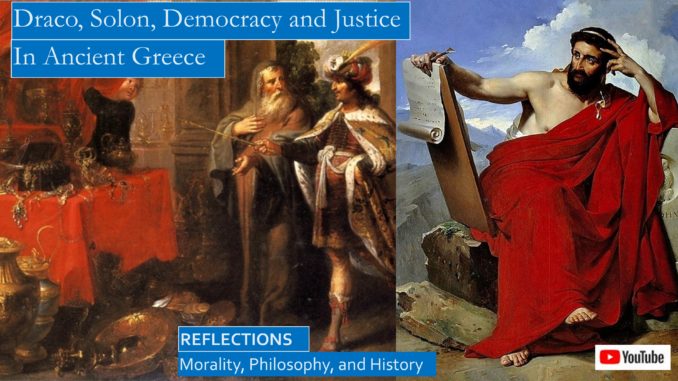
Homer’s Odyssey depict the deep Greek past where might makes right, where brave soldiers fight for justice, where grievances and murders are settled by blood feuds. As Greek emerged from its Dark Ages in the seventh century, the Greeks in Athens sought to establish a more systematic system of justice with laws governing the state. Draco was appointed by the ruling aristocracy to be a lawmaker to codify new laws to replace justice by feuds, now the Senate of the Areopagus would hear cases of homicide.
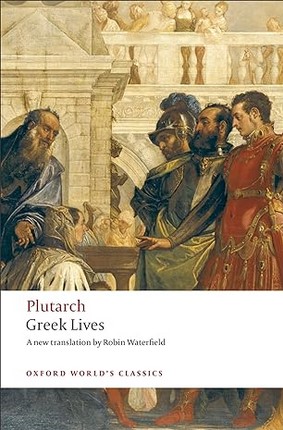
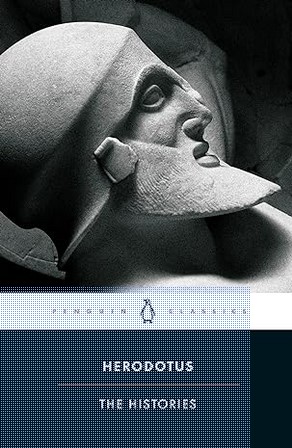
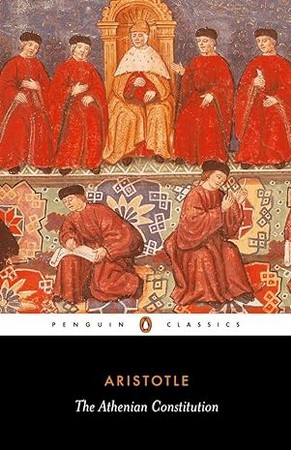
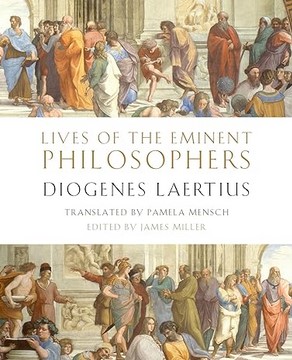
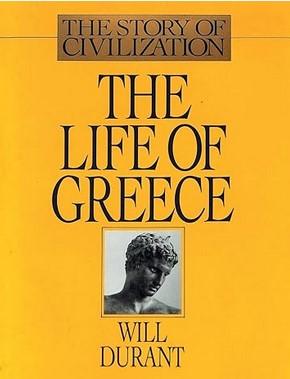 YouTube video: https://youtu.be/6sNSaOoQoJs
YouTube video: https://youtu.be/6sNSaOoQoJs
The modern historian Will Durant states that “Draco’s code congealed the cruel customs of unregulated feudalism;” “it did not mitigate the exploitation of the weak by the strong,” the rights of “property owners were protected more zealously than before; petty theft, even idleness,” was punished harshly.[1]
We remember Draco when we discuss unduly harsh, or DRACONIAN laws, and his laws were draconian even by ancient standards, the penalty for most crimes was death. Someone asked Draco why most crimes carried the death penalty, “Draco replied that petty crimes deserved the death penalty, so he could not find a heavier penalty for more serious offenses.”[2] We might ask, why not send petty criminals to spend a few months in prison? The answer is, there were no prisons in the ancient world, just as there were no policemen, no public prosecutors, and there were few jails. Practically, the only punishments available were fines, execution, and exile.
We know little about Draco, and less about the other Greek city-states, but we do know that this civil strife between the lower and upper classes, those who worked and those lived lives of luxury, sparked revolutions in several Greek city-states, where disaffected aristocrats called tyrants seized absolute power with help from the lower classes. Plutarch exclaimed that in the time of Solon, who lived several decades after Draco, “the disparity between the rich and poor had reached a peak. The city was in an extremely precarious state, and it looked as though the only way it could settle down and put an end to all the turmoil was by the establishment of a tyranny.”
There was great strife between the notables and the masses in Athens. Plutarch tells us, “All the common people were in debt to the wealthy members of society, because either they paid them a sixth of the produce they gained from working the lands,” which is why they were called sixth-parters, “or else by put up their own persons as collateral for their debts,” and if they defaulted “they might become slaves of Athens or be sold into slavery abroad. The creditors were so ruthless that people were often forced to sell even their own children or go into exile.” Many of them banded together to seek to “remove the debts, redistribute the land, and form an entirely new system of government.”[3]
These class tensions were also felt by the Athenian aristocracy, so later in the seventh century they decided to elect Solon as archon, granting him, as Will Durant says, “dictatorial powers to soothe the social war, establish a new constitution, and restore stability to the state. The upper classes, trusting to the conservatism of a moneyed man, reluctantly consented.”[4] Plutarch says Solon was given “the power to resolve disputes and make laws. The rich found him acceptable because of his wealth, and the poor because of his integrity.”[5]
CHARACTER OF SOLON
Who was this remarkable great man in history? Will Durant marvels, “It seems incredible” that in ancient Athens, at this time, “a man was found who, without any act of violence or any bitterness of speech, was able to persuade the rich and the poor to a compromise that not only averted social chaos but established a new and more generous political and economic order” for as long as Athens was an independent city-state.[6]
Plutarch exclaims that, although he was an aristocrat himself, “Solon was not impressed by wealth.” Solon, in his poetry, exclaims that:
“Two people are equally well off when one has much silver,
And gold, and wide wheat-bearing fields,
And horses and mules, while the other has only enough
To keep belly, body and feet in comfort,
And to enjoy the youthful bloom of woman and boy
When they too arrive and become agreeable in their season.”
And, Solon exclaims:
“Money I would like to have, but not unjustly gained;
For in the end justice always comes.”[7]
Plutarch exclaimed, “Men are burdened by endless troubles and anxieties if they have not been trained by reason in how to cope with fortune. Such people cannot enjoy their possession of something they really want, because it only makes them suffer pangs of anxiety and apprehension about the future, in case they lose it.”[8]
REFORMS OF SOLON
One of our main sources is the Athenian Constitution, the only surviving study of many studies of Greek City-State constitutions that the students of Aristotle completed. Most scholars have concluded from the quality of the composition that Aristotle was neither the author nor the lecturer of this work. We want to point out that this is a translation for a Greek term that referred not to a specific founding document but rather to a framework of laws enacted by a prominent lawgiver assigned to this task.
Aristotle’s student explains that “On gaining control of affairs Solon liberated the people, both immediately and for the future, by forbidding loans on the security of the person; and he enacted laws; and he cancelled both public and private debts, which the Athenians call the Shaking-off of burdens,” since this weight was lifted from their shoulders.[9]
Plutarch exclaims that Solon also quickly “repealed all of Draco’s laws, except the ones on homicide, because the penalties were too severe. Death was the penalty for almost all crimes,” which meant that those convicted of loitering or stealing fruits or vegetables, as well as those guilty of homicide, could potentially be subject to the death penalty.[10]
Before Solon the oligarchs who ruled the city-state were the hereditary nobility, Solon established new classes for the newly rich, enabling them to also share in the government if they met certain property requirements, which were based on the amount of crops harvested on their farmlands.[11] Before democracy could be extended to the workers of Athens, which would happen in the days of Pericles, it first had to be extended to the newly rich.
Aristotle’s student said that these were the “three most democratic features of Solon’s constitution:
- First and most important, the ban on loans on the security of the person,” no longer could you sell yourself into slavery to pay your debts.
- Second, it gave “permission to anyone who wished to seek retribution for those who were wronged” through the popular jury and court system.
- Third, the reform that “particularly contributed to the power of the masses, the right of appeal to the jury-court.”[12]
Thus, democracy and justice were intertwined in ancient Athens under these reforms.
Aristotle’s student said, “The people had thought that Solon would carry out a complete redistribution of property, while the nobles had thought that he would restore them to the same position as before or make only small changes. But Solon was opposed to both; and, while he could have combined with whichever party he chose and become tyrant, he preferred to incur the hatred of both by saving his country and legislating for the best.”[13] Plutarch observed, “Solon’s cancellation of the debts annoyed the rich, and the poor were even more aggrieved at his failure to redistribute the land as they expected, and because he had not completely removed the disparities and inequalities between the lives of men and their income, as Lycurgus of Sparta had done.”[14]
Many of Solon’s were amazingly progressive for the time, they include:
- Rich and poor were subject to the same restraints and penalties.
- Both rich and poor were eligible to serve on juries.
- The property tax was, in essence, a graduated income tax, the most impoverished were exempted from paying taxes.
- Forbidding the export of any produce except for olive oil, attempting to encourage olive production, which later would be central to the Athenian economy.
- Sons were not obligated to support aging fathers who had not taught them a trade.
- Although wronged husbands were permitted to kill adulterers caught in the act, there would only be a hefty fine for violating the honor of a free woman.
- The sons of soldiers and sailors who died in war would be brought up and educated at state expense.
- Legalizing and taxing prostitution in brothels licensed and supervised by the state.
- Granting amnesty to political prisoners, but not insurrectionists.[15]
Will Durant exclaims that his laws “liberating the Athenian farmers from serfdom, and the establishment of peasant proprietor class whose ownership of the soil made the little armies of Athens suffice to preserve her liberties for many generations. When, at the close of the Peloponnesian War, it was proposed to limit the franchise to freeholders, only five thousand adult freemen in all Attica failed to satisfy this requirement.”[16]
Once, when he was asked if the laws he passed were the best possible laws, Solon answered, “They were the best the Athenians would accept.”[17] When asked about what made the qualities of a well-ordered state, Solon responded, “When the people obey the rulers, and the rulers obey the laws.”[18]
SOLON TRAVELS THE ANCIENT WORLD RATHER THAN BECOME A TYRANT
Solon left Athens to travel the known world for a decade so they could not change the laws but learn to live under them, as he knew he would be continually pressured by all sides to amend the laws to undo these peacemaking measures.
His wanderings took him to Lydia and the court of the fabulously wealthy King Croesus, who was way too proud of his wealth, way too boastful. According to Diogenes of Laertius, “Some say that Croesus, after arraying himself in all his finery and seating himself on his throne, asked Solon whether he had ever seen a more beautiful sight. “Yes,” Solon replied, “roosters and pheasants and peacocks, since they have been adorned with a natural brilliancy and are ten thousand times more beautiful.”[19]
Due to the wisdom of his laws and his declining to by a tyrant, Greeks held Solon in high regard, he was regarded as one of the ancient Seven Sages. We know this from another story Herodotus tells us how Croesus escaped the flames.
The hubris and overconfidence of King Croesus led him to rashly attack the upcoming Cyrus the Great, and through brilliant tactics, Croesus was defeated. Cyrus ordered that Croesus be placed on a pyre that would be set ablaze. Herodotus tells us, “Croesus remembered with what divine truth Solon had declared that no man could be called happy until he was dead.” In our video on Herodotus, we already told the delightful tales Solon told of the humble Greeks who were happier than Croesus, because they died the good death when they were happy with loving families and divine purpose. We left the tale for how Croesus was saved from the flames until now.
As the pyre was lit, Croesus “sighed bitterly and three times, in anguish of spirit, uttered Solon’s name.” Cyrus heard this and asked, Who was this Solon? Croesus then told Cyrus “how Solon once came to Sardis and made light of the splendor he saw there, and how everything he said had proved true, not only for him but for all men and especially for those who imagine themselves fortunate.”
This story touched Cyrus, he realized that he, too, was mortal, “and was burning alive another who had once been as prosperous as he. The thought of that, and the fear of retribution, and the realization of how unstable human affairs were, made him change his mind and order that the flames be put out.”[20]
Solon’s poem to his friend Phocus discusses his decision to leave Athens for a decade:
“Did I spare the land of my birth?
Did I refrain from tyranny and brutality?
Preferring to keep my name unblemished by disgrace?
There is no shame for me in this. In fact, I think
It will set me above all other men.”[21]
PEISISTRATUS BECOMES TYRANT
Class tensions between the workers and the aristocracy continued even under the laws Solon had instituted. His cousin, Peisistratus, was ambitious and sought to become tyrant himself. Diogenes of Laertius exclaimed that the people would have “gladly had Solon rule them as a tyrant. But Solon declined. And perceiving the ambitions of Pisistratus his kinsman, he did all he could to hinder him. Dashing into the Athenian Assembly with spear and shield, he warned the people about Pisistratus.” He proclaimed, “Men of Athens, I am wiser than some of you and braver than others. Wiser than those who fail to discern his deception, and braver than those keep silent out of fear.” But in later years, during one of the terms of Pisistratus as tyrant, Solon laid down his weapons, made his peace with Pisistratus, and may have been one of his counselors.[22]
Peisistratus succeeded in becoming tyrant but was driven from power after a few years. Herodotus tells us how the Athenians fell for a ridiculous trick that established Peisistratus as tyrant for the second time, “In the village of Paeania there was a handsome woman called Phye, nearly six feet tall, whom they fitted out in a suit of armor and mounted in a chariot; then, after getting her to pose in a most striking attitude, she and Peisistratus drove into Athens, where messengers who had preceded them were there already, talking to the people and urging them to welcome Peisistratus back, because the goddess Athena herself had shown him extraordinary honor and was bringing him back to her own Acropolis.”[23]
He was again driven out, but the third time he seized power, Peisistratus reined for nineteen years until his death. Will Durant tells us, “Peisistratus surprised everyone by making few changes to the Solon constitution. Like Caesar Augustus he knew how to adorn and support dictatorship with democratic concessions and forms.” Under Pisistratus, the government ran as it did before, but by officials under the thumb of Pisistratus.
Peisistratus ruled benevolently, among his accomplishments:
- He divided among the poor the land belonging to the state and banished aristocrats.
- He employed many workers on public projects including building temples, roads, and aqueducts.
- Established the PanHellenic athletic contests.
- Encouraged the theater and instructed poets to write down the epic Homeric epics for easier recitation.
Will Durant exclaims that “under his rule trade flourished.” “The poor were less poor, the rich not less rich. That concentration of wealth which had nearly torn the city into civil war was brought under control.”
Will Durant so elegantly concludes, “Probably Athens had needed, after Solon, just a man as Peisistratus: one with sufficient iron in his blood to beat the disorder of Athenian life into a strong and steady form, and to establish those habits of order and law which are to a society what the skeleton is to an animal.” “When, after a generation, the dictatorship was removed, these habits of order and the framework of Solon’s constitution remained as a heritage for democracy. Peisistratus, perhaps not knowing it, had come not to destroy the law but to fulfill it.”
After Peisistratus died, his son Hippias continued his policies and ruled benevolently for a dozen years, but then an affair gone awry caused his brother’s assassination, leading to paranoia and an increasingly brutal regime, which led to a coup that reestablished democracy in Athens.[24] You can read this tawdry tale in Herodotus and Thucydides.
An aristocrat named Cleisthenes was triumphant in the chaos, and as dictator he drafted laws to fundamentally change how the city-state was organized to finally break the hold the oldest and richest families had over the government. He abolished the four regional tribes and replaced them with ten tribes that consisted of subdivisions called DEMES, and each tribe was allocated demes from the city and the coast and the interior. You can read for yourself the details; the effect was that more citizens were involved in the democracy that had a much broader base.
Another reform of Cleisthenes was the ostracism. Once a year the Assembly would be able to call an ostracism, which was a special election with a quorum of six thousand citizens where the citizens could choose to send into exile any citizen for ten years, their property was not seized, and they could eventually return to Athens. The purpose was to discourage demagogues, during the ninety years it was in effect, only ten men were ostracized.[25]
The final reforms creating the radical democracy were enacted under the famous Athenian general Pericles, who will be featured in a future video.
DISCUSSING THE SOURCES
There were references to Aristotle’s Athenian Constitution in ancient sources, but it was a lost work until scholars found two papyrus manuscripts, one in 1879, and another with fewer missing pages in 1890.[26] These were school assignments, Aristotle had his students gather and summarize the law codes and histories from over a hundred Greek city-states, but only the Athenian Constitution survived, but just barely. Our translator argues that from the inferior writing style and organization we can presume that Aristotle did not write this work, nor did he heavily edit it, so in our footnotes we credit it to Aristotle’s student.[27] Without this important work, we would know little about the details and history of democracy and juries in Athens.
Plutarch’s Lives of Noble Greeks in Romans is our next major source, he is a delight to read and is one of the most reliable historians and biographers. Plutarch clearly uses the Athenian Constitution as one of his sources. Plutarch wrote his Lives in the beginning of the second century AD, about 450 years after Aristotle. The chief manuscripts date from the 10th and 11th century,[28] neither Dr Wikipedia nor our translators say more about the manuscript tradition, but since Plutarch’s Lives have all survived, there were likely many manuscripts.
Plutarch wrote his lives in pairs of Noble Greeks and Romans, the Roman he paired with Solon, Poplicola, was a stalwart Roman, but he did not steer the Roman state in a new direction as did Solon for Greece. However, our Founding Fathers did admire Poplicola, the pen-name Publius in the Federalist Papers was in honor of Poplicola.[29]
Both Plutarch and Diogenes of Sinope sought to draw moral lessons from their histories. Diogenes is a quirky source, neither as accurate nor as elegant as Plutarch. We discuss Diogenes in our lectures on Zeno[30], the Greek Cynic Philosophers[31], and the Epicurean philosophers[32]. We quoted some memorable phrases from Diogenes.
Will Durant’s Life of Greece, written in 1939, is a classical history, he is an excellent writer as you can tell from his quotations. Will Durant’s primary sources for Draco and Solon are also Aristotle’s Constitution, Plutarch, and to a lesser extent, Diogenes.
Herodotus’ Histories are an excellent history for the period of Pisistratus, and the visit of Solon to Croesus in Persia, and how Hippias, son and successor of Pisistratus, was overthrown after a beneficent rule of more than a dozen years. We have three videos and blogs on the Histories of Herodotus.
CONCLUSION
We will conclude our discussion with a quote from Diogenes of Laertius: Solon gave men this advice: “Trust good character more than an oath. Do not lie. Purse worthy goals. Command only when you have learned to be ruled. Give the best advice, not the most pleasant. Make reason your guide. Have no dealings with base men. Honor the gods. Respect your parents.”[33]
[1] Will Durant, The Life of Greece (New York: Simon and Schuster, 1966, 1939), pp. 111-112.
[2] Plutarch, Greek Lives, Solon, translated by Robin Waterfield (Oxford: Oxford University Press, 1998, originally First Century AD), Chapter 17, p. 61.
[3] Plutarch, Greek Lives, Solon, Chapter 13, pp. 56-57, and Aristotle’s student, The Athenian Constitution, translated by PJ Rhodes (New York: Penguin Classics, 1984, 2002, originally written about 4th Century BC), Chapters 2, p. 43.
[4] Will Durant, The Life of Greece, p. 113.
[5] Plutarch, Greek Lives, Solon, Chapter 14, p. 57.
[6] Will Durant, The Life of Greece, pp. 112-113.
[7] Plutarch, Greek Lives, Solon, Chapter 2, p. 47.
[8] Plutarch, Greek Lives, Solon, Chapter 7, p. 51.
[9] Aristotle’s student, The Athenian Constitution, Chapter 6, p. 47.
[10] Plutarch, Greek Lives, Solon, Chapter 17, p. 61.
[11] Plutarch, Greek Lives, Solon, Chapter 18, pp. 61-62.
[12] Aristotle’s student, The Athenian Constitution, Chapter 9, p. 50.
[13] Aristotle’s student, The Athenian Constitution, Chapter 11, p. 51.
[14] Plutarch, Greek Lives, Solon, Chapter 16, p. 60.
[15] Will Durant, The Life of Greece, pp. 115-117.
[16] Will Durant, The Life of Greece, pp. 118.
[17] Plutarch, Greek Lives, Solon, Chapter 15, pp. 58-59.
[18] Will Durant, The Life of Greece, p. 118, quoting Diogenes.
[19] Diogenes, Lives of Eminent Philosophers, Solon, translated by Pamela Mensch, (New York: Oxford University Press, 2018), Book 1, Chapter 51, p. 26.
[20] Herodotus, The Histories, translated by Aubrey De Selincourt (London, New York: Penguin Classics, 2003, 1954, originally Fifth Century BC), Book One, Chapter 86, p. 40.
[21] Plutarch, Greek Lives, Solon, Chapter 14, p. 58.
[22] Diogenes of Laertius, Lives of Eminent Philosophers, Solon, translated by Pamela Mensch, (New York: Oxford University Press, 2018), Book 1, Chapters 49-54, pp. 25-28.
[23] Herodotus, The Histories, Book One, Chapter 60, p. 26.
[24] Will Durant, The Life of Greece, pp. 119-122.
[25] Will Durant, The Life of Greece, pp. 123-125.
[26] https://en.wikipedia.org/wiki/Constitution_of_the_Athenians_(Aristotle)
[27] Aristotle’s student, The Athenian Constitution, Introduction by PJ Rhodes, translator, pp. 10-13.
[28] https://en.wikipedia.org/wiki/Parallel_Lives
[29] https://en.wikipedia.org/wiki/Publius_Valerius_Poplicola
[30] https://youtu.be/STxpGlkFyvs and http://www.seekingvirtueandwisdom.com/diogenese-on-the-greek-stoic-zeno-of-citium/
[31] https://youtu.be/zAAal5p8AX8 and http://www.seekingvirtueandwisdom.com/diogenes-and-the-greek-cynic-philosophers/
[32] https://youtu.be/49Qv3Be86Jw and http://www.seekingvirtueandwisdom.com/was-epicurus-really-a-stoic-lite-philosopher-were-all-epicureans-hedonists/ and http://www.seekingvirtueandwisdom.com/epicurus-aristippus-and-lucretius-history-of-epicurean-philosophy/
[33] Diogenes, Lives of Eminent Philosophers, Solon, Book 1, Chapter 60, p. 30.

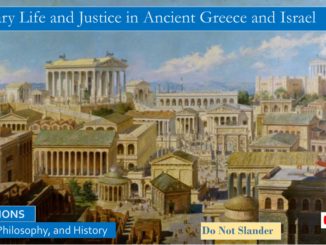
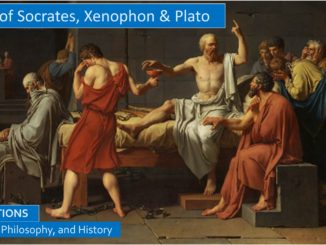
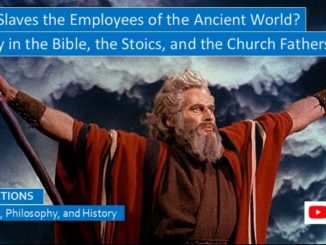
Be the first to comment